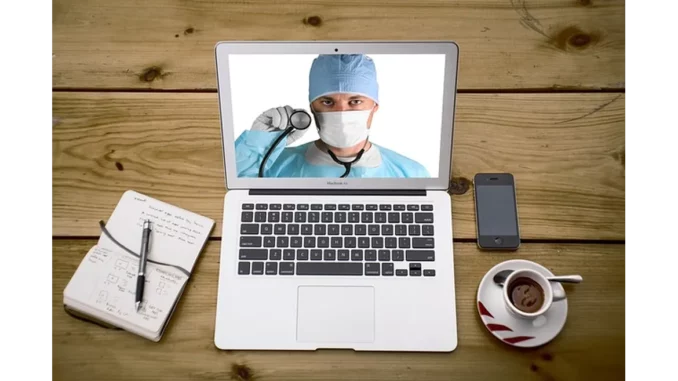
In today’s rapidly advancing technological landscape, the healthcare sector is experiencing a profound transformation. One of the notable advancements is the integration of AI in medical practice, which is significantly altering how healthcare professionals manage their duties. This evolution is exemplified by the medical AI assistant known as Suki, which is revolutionising the way doctors handle administrative tasks. Dr Lucy Harrington, a seasoned general practitioner, shared her insights on this cutting-edge technology, which is now a pivotal part of her practice.
Dr Harrington, with over a decade of experience, has long been acquainted with the challenges of balancing patient care with the administrative demands that follow each consultation. “The administrative burden can be overwhelming,” she confided. “It sometimes feels like I spend more time documenting patient interactions than actually interacting with them.” This is a burden shared by many healthcare professionals, who find themselves inundated with paperwork, detracting from their primary focus: patient care.
The introduction of Suki, an AI-powered assistant, promises to alleviate this administrative pressure. Through a collaboration between Zoom and Suki, this AI notetaker is now seamlessly integrated into Zoom’s telehealth services. For Dr Harrington, this innovation has drastically reduced the time she spends on documentation, allowing her to dedicate more attention to her patients. Initially sceptical, Dr Harrington was concerned about the intrusive nature of an AI listening in on her patient consultations. However, her perspective shifted as she witnessed the tangible benefits. “Once I understood how it worked and saw the benefits, I was on board,” she explained.
The functionality of Suki is both straightforward and advanced. With patient consent, Suki listens during Zoom consultations, capturing the conversation and processing the transcript for essential details and follow-up plans. The generated notes are then reviewed and approved by the doctor before being added to the patient’s electronic health record. This process has transformed Dr Harrington’s consultations. “I can maintain eye contact with my patients and listen to them without the distraction of taking notes,” she noted. “Suki ensures that nothing important is missed.”
The integration of Suki into Zoom is a strategic response to the increasing demand for efficient telehealth services, a demand that has surged in the wake of the COVID-19 pandemic. With over 140,000 healthcare institutions globally using Zoom, the potential impact of this integration is considerable. As Smita Hashim, Zoom’s Chief Product Officer, emphasised, “Working together with Suki to provide AI-generated clinical notes will reduce documentation overhead for clinicians, allowing them to focus on patients.”
This advancement benefits not only healthcare providers but also patients. With physicians able to concentrate more on the consultation itself rather than the accompanying documentation, the quality of care is significantly enhanced. Dr Harrington shared her observations on this improvement: “Patients appreciate the fact that I am fully present. It reassures them that their concerns are being heard and addressed.”
The healthcare field is witnessing a surge in AI-driven innovations, with major companies like Microsoft and Amazon exploring similar ventures. However, Suki distinguishes itself with its specialised focus on clinical notetaking, a historically cumbersome task for medical practitioners. Despite its technological sophistication, Suki’s implementation is guided by a simple yet impactful objective: to make healthcare technology both invisible and assistive. Punit Soni, Suki’s CEO, articulated this vision succinctly: “AI is changing the way we interact with the world. Our mission is to advance healthcare technology so clinicians can focus on what’s most important: their patients.”
Reflecting on the broader implications of Suki’s integration into her practice, Dr Harrington remarked, “It’s about embracing the future of healthcare. The technology allows us to reclaim time—time that can be better spent understanding our patients and their needs.” What once seemed like a concept from science fiction is now an invaluable asset for healthcare providers like Dr Harrington. As technology continues to evolve, the hope is that such innovations will usher in more personalised and effective patient care, fundamentally transforming the medical landscape for the better.
As we look to the future, it will be intriguing to observe how AI continues to weave itself into the fabric of healthcare. This ongoing integration promises to reshape the dynamics between doctors and patients, ensuring that the human element remains at the heart of medicine.


Be the first to comment